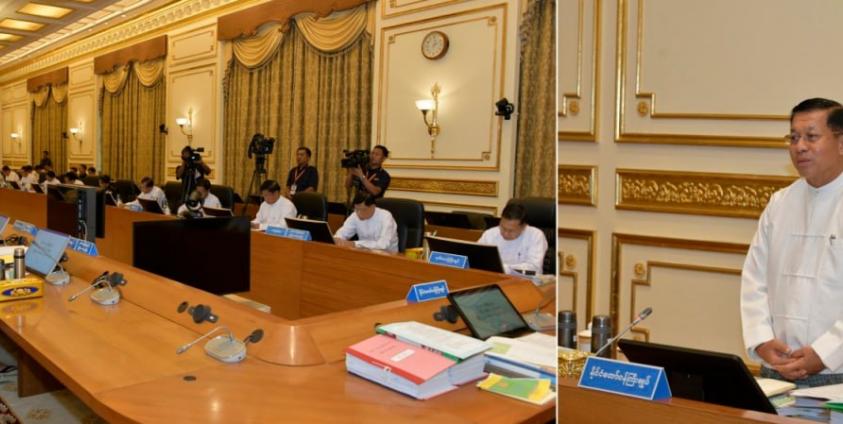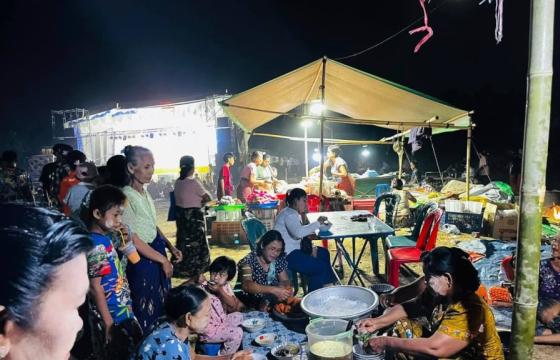Political analysts suggest that the junta chief's recent statement, highlighting the remaining security and stability requirements that need to be fully implemented in the country, could potentially lead to an extension of the state of emergency.
During the Union Government meeting of the Military Council on July 13, Senior General Min Aung Hlaing, the military leader, discussed the five steps to be taken in the future. The military leader emphasized that one of the key priorities in the upcoming process, is to prioritize stability and the establishment of the rule of law, ensuring the safety and well-being of the people's socio-economic life.
In the first seven months of this year, there have been 489 explosions and over 780 deaths. Although the incidents of terrorism have decreased, it is still concerning that such incidents continue to occur, according to the military leader.
Therefore, the military leader said that there is still a need for full implementation regarding security, stability, and the rule of law.
Political analyst U Ye Tun stated that as the state of emergency is about to expire and the country remains unstable, the military leader's statement indicates the necessity of extending the term for another six months.
"The military leader took a 6-month extension by claiming that the entire country was not yet in a position for free voting. However, despite the passage of those six months, the situation has shown no signs of improvement. As the situation remains unchanged, an extension is the only option at hand," U Ye Tun said.
The National Defense and Security Council (NDSC) held a meeting on January 31 due to the country's abnormal state, and the Military Council, which previously extended the state of emergency by six months, is set to expire on July 31.
According to U Aung San Myint, the Secretary-1 of the Karenni National Progressive Party (KNPP), the Military Council is determined to maintain its illegal power and will take various measures to ensure its continued hold on power.
"They are determined to hold onto power no matter what they say. They have no intention of fully relinquishing control. They currently hold the constitution in their hands. Despite what the constitution stipulates, they are exceeding its limits to maintain their power. They are determined to keep their illegal authority because they have the ability to shape it as they desire," said U Aung San Myint.
The military leader highlighted that the Sagaing Region, Chin State, and Kayah State are currently experiencing the most severe situations, necessitating increased security measures. Additionally, there have been incidents of policemen losing their lives while carrying out their security duties.
According to the military leader, upon the completion of the last step of the process, which involves the emergency period provisions, a multi-party democratic election will be held. It is crucial to prioritize security and stability during this period to ensure a seamless transfer of power to the winning party.
In various regions throughout the entire country, armed resistance against the military coup has sparked offensive battles and led to the occupation of certain areas by revolutionary forces.
According to ISP-Myanmar, a research group, an alarming number of over 9,500 clashes have taken place across the country from the time of the military coup until May of this year.







